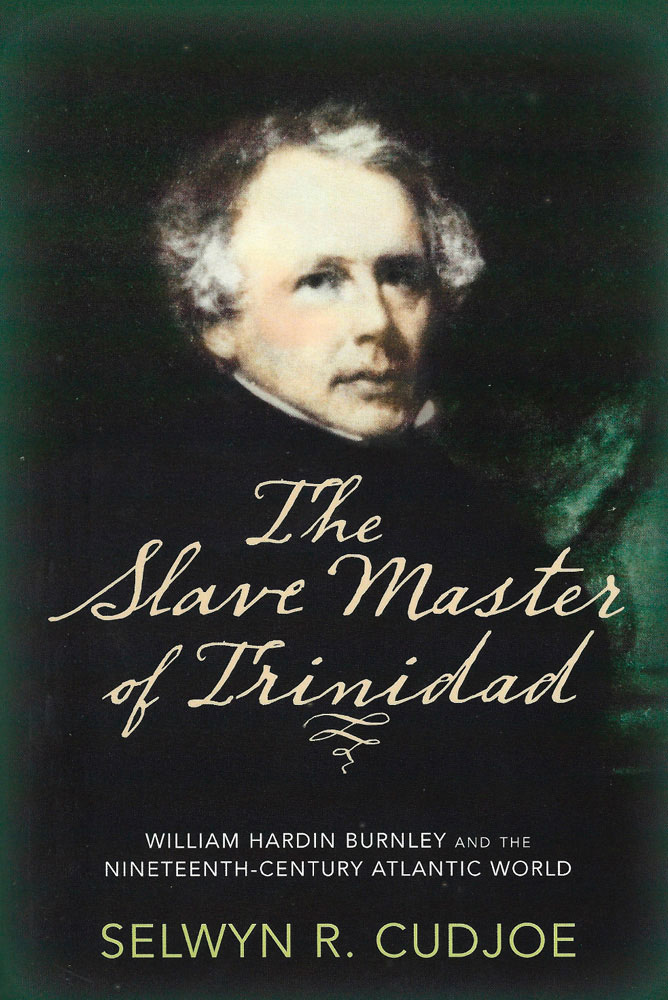Golden Child
by Claire Adam (Faber & Faber, 272 pp, ISBN 9780571339808)
Peter and Paul Deyalsingh are twin brothers, growing up in 1980s Trinidad, and they are as different in ambition as two boys could ever be. Different, too, are the ambitions of their parents, petroleum worker Clyde and homemaker Joy, for their sons. Peter is their “golden child”: an academically gifted prodigy on whose shoulders weigh the hope for not only a government scholarship, but the Gold Medal, which confers opportunity and respectability for both recipient and family. Paul, having been told he is “slightly retarded” by contrast, seems most content in his world of wilderness roaming and forest jaunts. It isn’t hard for Paul to disappear into the dense bush that surrounds the Deyalsinghs’ rural home. A day comes when he vanishes, and does not return when called.
Trinidad-born, UK-based Claire Adam’s debut teems with quiet power. You won’t find grand flourishes of language here. The novel is composed with a deadly elegance, trimmed with subtlety that serves to make its secrets pulse with painful, palpable strength. Every rustling leaf in the undergrowth matters in this magisterially paced saga. Every blade of grass gleams.
A complex novel provides its reader with difficult choices. Golden Child buckles you into an emotional briefcase of catch-22s. Clyde, who strives to make the best decisions for both his children, is a complex, unforgettably rendered patriarch, a man who wades into deeper, murkier ethical terrain with each choice he makes. As he grimly muses, “They have two kinds of men in the world . . . One kind works hard and brings all the money home and gives it to his wife to spend on the house and children. The other kind doesn’t do that. And nobody can control which kind of father they get.”
Here is a debut that does what so many other new releases claim to do, but don’t — it breaks new ground. Adam strikes under the very bedrock of complacency, revealing what we will — and won’t — do for our children, and to ourselves.
How to Love a Jamaican
by Alexia Arthurs (Ballantine Books, 256 pp, ISBN 9781524799205)
“Caribbean mothers want to eat their daughters,” one woman says in the opening story of How to Love a Jamaican. In these tales laced with good food, mermaids, and old, beloved Bibles, Arthurs tugs on the navel strings of women connected through blood, beauty, and the tidal pull of home. In the title story, ginger tea and gizzard are backdrops to a marriage’s seasonal rhythms, and the secrets of fatherhood and forgiveness it contains. “Bad Behaviour” sees a sexually burgeoning teen sent back to Jamaica, to be sorted out by her “old-time granny.” Her lessons are learning to make fry dumplings, chicken foot soup, and sweet potato pudding: proof that some education can simmer in a cast-iron pot, till it’s ready to be served. Arthurs plates her short fiction with spice and savour.
Black Leopard, Red Wolf
by Marlon James (Riverhead Books, 640 pp, ISBN 9780735220171)
Lost the plot a couple hundred pages in? Never fear. Black Leopard, Red Wolf, first in the Dark Star Trilogy, delivers more than one seamless narrative, and more than one sleepless night spent following its tributaries of genre-limboing mystery, fable, and dark adventure. Marlon James’s prose is on rhapsodic, unfettered display here: alternately gut-punching, dizzying, and sobbingly intense. The language of the novel drives us through a search for a missing child, past a tableau of abusive fathers, politically motivated members of the feline kingdom, generations of trauma, gender fluidity, and reams of actual viscera. Our protagonist Tracker, a mysterious career sleuth with a nose of gold, is a stunning enigma — just like the rest of this unputdownable yarn.
Wordplanting
by Kendel Hippolyte (Peepal Tree Press, 64 pp, ISBN 9781845234355)
St Lucian poet Kendel Hippolyte’s seventh collection regards tenderly and contemplatively, as do many poems set in a writer’s later years, the steps that lead to the afterlife. A well-earned wisdom facing down death is in these verses, and yet the poems in Wordplanting are so generously activated by what keeps us incandescently, immutably alive. In “Harp”, a ruminant elder finds himself out of step and sync with the dancehall of the current generation, yet soldiers on stalwartly in paeans of song, made to bruk down Babylon’s walls. Even the most domestic of these poems lilts with music, proof that poetry about home spaces is no less powerful in a masterful griot’s hands. Taking us from foreign cities to the depths of the unlit sea, Hippolyte is calling us all into our own power, with soaring wonder.
The Slave Master of Trinidad
by Selwyn R. Cudjoe (University of Massachusetts Press, 384 pp, ISBN 9781625343703)
William Hardin Burnley cut a hard, unforgiving figure against the backdrop of the nineteenth-century Caribbean, dominating Trinidad’s slave-owning society. A proponent of entrenched racism, a ruthless representative of the concerns of the British Empire, Burnley ferociously agitated against emancipation, saying it was madness “to suppose that African savages could be beneficially, either for themselves or the community, governed by the same code as English labourers.” Cudjoe’s scholarship in The Slave Master of Trinidad is a lucid, expressive mechanism, unveiling heinous doctrines that were normalised through Atlantic slave commerce. This impressive character study of Burnley in his era reveals how one man became a titan of industry while wielding the bloodiest of ledgers.























